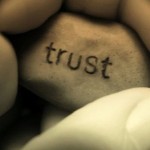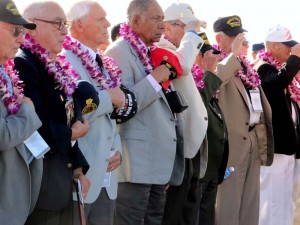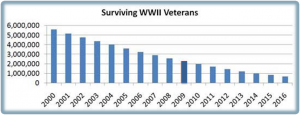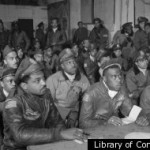Who better to tell us how to survive and thrive in a crisis than elders who lived through the Great Depression, World War II, and even the 1918 Spanish Influenza epidemic? It’s a pleasure to share these insights from the Cornell Chronicle.
The COVID-19 pandemic has us asking difficult questions: How will we survive this? What are we willing to sacrifice? What comes next?
In a moment that feels unprecedented, we can learn from the hard-won wisdom of a generation that weathered the most devastating events of the 20th century and lived to tell the tale.
Karl Pillemer, the Hazel E. Reed Professor in the College of Human Ecology’s Department of Human Development, began a 10-year project interviewing older Americans in 2003, his research described in his 2012 book, “30 Lessons for Living: Tried and True Advice from the Wisest Americans.”
Pillemer is also professor of gerontology in medicine at Weill Cornell Medicine, and senior associate dean for research and outreach in the College of Human Ecology. His major research interests include human development, with a special emphasis on family and social relationships in middle age and beyond.
For his research, Pillemer started with the premise that older people have invaluable knowledge on how to live well through hard times. The average age of his interviewees was 77; the oldest was 108. Approximately 1,000 of them outlasted the Great Depression, 1,200 endured World War II and 60 survived the 1918 Spanish flu pandemic.
He asked them: Based on your experience of these world-shaking crises, what advice do you have for living through them?
Take the long view
Although the COVID-19 pandemic is changing the nation, the very longevity of the oldest Americans is proof this crisis will end and rebuilding will begin. The elders can provide us with the long view, confirming in a literal sense that “this, too, shall pass.”
“I met Holocaust survivors, refugees from many of the early 20th century’s other major conflicts, and people who lost everything in the Depression,” Pillemer said. “By the time I sat with them 40, 50, 60, or 70 years later, they had built comfortable, often successful and fulfilling lives. Their message was extraordinarily clear: Crises occur, societies change and, with resilience, we recover and move on.”
Focusing on what your future can be a decade or more from now can provide an antidote to worry, the elders advise. This lesson is also a reminder: Present actions are the future stories of how we survived. What story do we want to tell?
Be generous
If you want to help yourself, the elders said, help others. Pillemer noted that their own poor families helped out even poorer ones during the Great Depression. They remember World War II as a time when communities came together and everyone joined hands and hearts to support one another at home.
“Generously assisting other people to the extent that we can is a major way people are able to feel a sense of control,” Pillemer said. “Whether that was helping other people during the Great Depression or assisting the war effort during WWII. Generously helping others is a very good, self-interested strategy.”
Don’t worry – prepare instead
The oldest Americans have experience worrying about an event, going through the event and dealing with the fallout. According to Pillemer, they overwhelmingly agree: At best, worrying wastes time; at worst, it increases your suffering.
“They found that the best antidote to gnawing worries was taking action,” Pillemer said. “Preparation for the worst doesn’t just make sense for your protection; it also makes you feel empowered. From their experience of crisis, they advise that conscious, rational planning greatly reduces free-floating worry.”
Enjoy small daily pleasures
The last lesson Pillemer shared was the importance of experiencing joy and savoring small daily pleasures. When people seek happiness, they often think about “big-ticket” items: buying a house, finding a partner, having a child, getting a new job, making more money. The elders tell us that a positive attitude in a crisis depends on thinking small.
“A morning cup of coffee … a brightly colored bird feeding on the lawn, an unexpected letter from a friend, even a favorite song on the radio,” he said. “Paying special attention to these ‘microlevel’ events forms a fabric of happiness that lifts them up daily. They believe the same can be true for younger people as well.”
Pillemer’s research highlights the wisdom of a disappearing generation, and the inestimable value of the stories and knowledge of the elders among us. And so, with no small amount of urgency, one final lesson taken from Pillemer’s lead: Ask your elders your questions while you can, and find comfort in their resilience.
Written by E.C. Barrett who is a freelance writer, for the Cornell Chronicle.
 different ways: being truthful, being a person of trust, or having integrity. But it shines above all others in the advice elders give about core values.
different ways: being truthful, being a person of trust, or having integrity. But it shines above all others in the advice elders give about core values.



